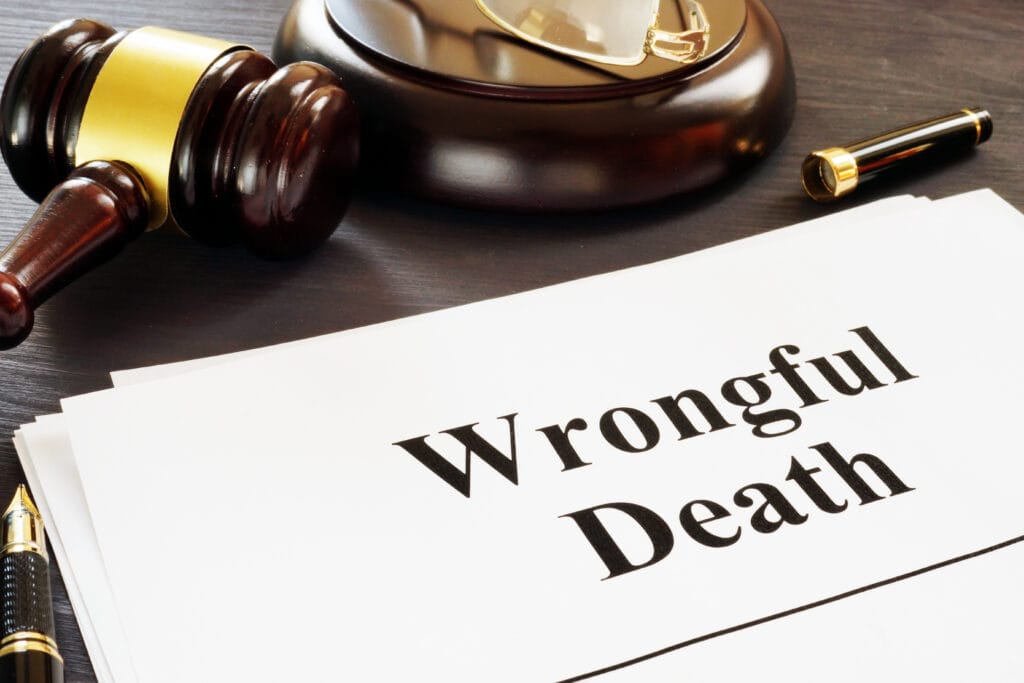
In every lawsuit, the concept of standing plays a crucial role. Standing refers to the legal right of an individual or entity to challenge the conduct of another party in court. In a typical personal injury lawsuit, the person bringing the suit is also the person claiming to be injured. In such cases, standing is straightforward: they claim to have been injured by another person’s conduct, and thus have the right to challenge said conduct in court. However, when the person who was injured by another person dies, standing becomes more complex. In defending a wrongful death claim, one of the preliminary focuses must be on whether the party bringing the suit has the capacity to do so.
What is a wrongful death claim?
A wrongful death claim is a legal action brought by the survivors or the estate of a deceased person against a party whose negligent or intentional actions caused the decedent’s death. In Georgia, wrongful death claims are only permitted under the auspices of the Wrongful Death Act, O.C.G.A. § 51–4–1 et seq. Georgia’s interpretive approach to the Wrongful Death Act is extremely strict. As the Supreme Court of Georgia emphasized in Tolbert v. Maner, 271 Ga. 207, 208 (1999),[t]here is no common law right to file a claim for wrongful death; the claim is entirely a statutory creation…. Being in derogation of common law, the scope of the Wrongful Death Act must be limited in strict accordance with the statutory language used therein, and such language can never be extended beyond its plain and ordinary meaning. The express language of the Act will be followed literally and no exceptions to the requirements of the Act will be read into the statute by the courts.
Id. (Internal punctuation and citations omitted).
Who are the proper parties?
1. Spouse: The primary person that is entitled to make a wrongful death claim is the decedent’s spouse. O.C.G.A. § 51-4-2(a). Importantly, if the decedent has a living spouse, no one else may bring an individual wrongful death claim. One exception to this rule arises in cases where the spouse is the one who caused the death of the decedent. See e.g., McIver v. Oliver, 353 Ga. App. 106, 108–09 (2019). Indeed, Georgia law provides that “[a]lthough the law contemplates that there should be a right of recovery, it does not authorize a surviving spouse to benefit from his own wrong.” Id. (citing Connell v. Murray, 205 Ga. App. 702, 703 (1992)).
2. Children: If there is no surviving spouse, the decedent’s children are next in line. O.C.G.A. § 51-4-2(a). However, in 1977, the Georgia legislature enacted former O.C.G.A § 19-8-14 [current O.C.G.A. § 19-8-19], which provided, in pertinent part, that the effect of a decree of adoption was to terminate “all legal relationships between the adopted individual and his relatives, including his natural parent(s), so that the adopted individual thereafter is a stranger to his former relatives for all purposes, including inheritance ….” Id. In other words, when a parent gives a child up for adoption, that child has no standing to bring a wrongful death claim. See Johnson v. Parrish, 159 Ga. App. 613 (1981) (holding that a daughter, who had been adopted by her grandmother prior to her biological father’s death, was ineligible to bring a wrongful death claim).
3. Parents: When a decedent dies unmarried and without any children, as is the case in many wrongful death claims where the decedent was a child, the right of action is vested in the decedent’s parents. O.C.G.A. §§ 51-4-4; 19-7-1. If the parents are living together and not divorced, the right is in the parents jointly. If either parent is deceased, the right is in the surviving parent. If both parents are living but are divorced, separated, or living apart, the right is in both parents. However, the non-custodial parent’s right to recover for the wrongful death of his minor child can be lost if the jury finds that he has failed to contribute to the support of the child. See Queen v. Carey, 210 Ga. App. 41 (1993).
Additionally, unless the relationship of parent and child was created by adoption, only the natural parent has a right of action for the death of a child. Thus, a stepparent, foster parent, or guardian has no right of action for the death of the child in their care. See Smith v. Jones, 72 Ga. App. 638 (1945) (foster son); Atkinson v. Yarborough, 13 Ga. App. 781, 783 (1913) (grandchild); Stoddard v. Campbell, 27 Ga. App. 363 (1921) (grandchild).
4. Administrator or Executor: If there is no spouse, child, or parent to bring an action for the wrongful death of a decedent, the administrator or executor of the decedent’s estate may bring an action for and may recover and hold the amount recovered for the benefit of the next of kin. O.C.G.A. § 51-4-5(a).
Importantly, the authority to bring an action for wrongful death on behalf of the decedent’s estate is not established until an administrator is duly appointed by a probate court. While it is true that certain acts by a representative made prior to their qualification as administrator of the estate may relate back (see e.g., Hudmon v. Thomasson, 74 Ga. App. 31, 33 (1946)), a suit brought by the “administrator” of an estate before an administrator is actually appointed is a nullity. Mathews v. Cleveland, 159 Ga. App. 616, 617 (1981). Of note, a plaintiff contending to be a qualified administrator of a decedent’s estate need not show any proof of their representative capacity unless the defendant specifically denies it in the pleadings. Coastal Pub. Serv. Co. v. Mordecai, 49 Ga. App. 60 (1934). Therefore, raising affirmative defenses as to the plaintiff-administrator’s standing and demanding proof of their representative capacity to bring suit should be a preliminary consideration for defending wrongful death cases brought by administrators.
